38 article on food labels
Food labels News, Research and Analysis - The Conversation Articles on Food labels Displaying all articles October 11, 2022 Why food labels showing the exercise needed to burn off calories won't work for everyone Justin Roberts, Anglia Ruskin... Food Labels (for Teens) - Nemours KidsHealth A food with 5% or less of a nutrient is low in that nutrient. A food with 10%-19% of a nutrient is a good source of that nutrient. A food with 20% or more of a nutrient is high in that nutrient. The information on food labels is based on an average adult diet of 2,000 calories per day. The actual number of calories and nutrients that kids ...
Consumer perspectives on food labels - Oxford Academic Consumers showed high awareness of the information on nutrition labels. When aided, they were most aware of calories (89%), followed by total fat (81%), sodium (75%), sugars (73%), carbohydrates (72%), saturated fat (71%), and cholesterol (66%). This ranking provides insight into the relative importance consumers place on each of these items.
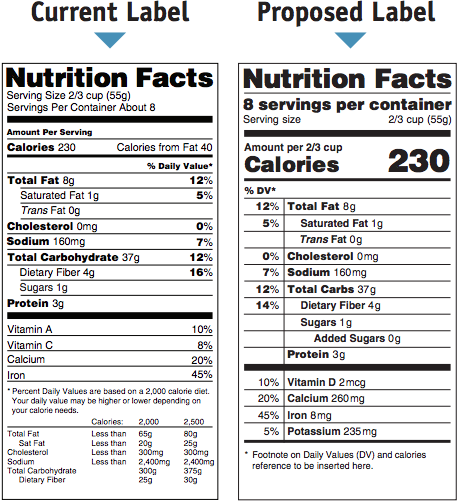
Article on food labels
USDA ERS - Food Labeling Restaurant menu labeling Food manufacturers provide much information about the attributes of their products, such as comparative prices and taste, convenience, and nutrition. Labels can provide further information to consumers, increase demand for producers' brands, and promote the marketing of new attributes of products. The Secret Life (and Value) of Food Labels FOP labeling reduces the information to the top public health concerns, reducing all that extraneous informational clutter. The top four are calories, saturated fat, salt, and sugar. Over time, the presence of these voluntary labels resulted in 13% fewer calories, saturated fats, sugars, and 4% less salt for these products overall. Understanding Food Labels - The Nutrition Source Under the Food Allergen Labeling and Consumer Protection Act of 2004, eight major food allergens—milk, fish, tree nuts, peanuts, shellfish, wheat, eggs, and soybeans—are required to be listed in a "contains" statement near the Ingredients list if present in a food. An example would be "contains wheat, milk, and soy."
Article on food labels. Food Labeling & Nutrition | FDA Food labeling is required for most prepared foods, such as breads, cereals, canned and frozen foods, snacks, desserts, drinks, etc. Nutrition labeling for raw produce (fruits and vegetables) and... Food Labeling: MedlinePlus With this, you can figure out if a food is high or low in a nutrient: 5% or less is low, 20% or more is high. The information on a food label can help you see how a certain food or drink fits into your overall diet. The label lists, per serving,: The number of calories. Fats, including total fat, saturated fat, and trans fat. Cholesterol. Sodium. How to Improve Your Health by Reading Labels: 8 Steps Steps. 1. Find your item in your local mega-mart, online, or in a general grocery store. 2. Read the whole label, especially the small print, but never believe what you read on the front and side of the label. Be wary of the way they write advertisements. The Effects of Nutrition Knowledge on Food Label Use: A Review of the ... Support was found for the knowledge-is-power position relating to food label use. Most studies focused on nutrition labels, few included claims and ingredient lists. Nutrition knowledge supported food label use across a range of knowledge measures. More research with representative samples and wider age ranges is needed. Contributor Information
Are Food Labels Effective as a Means of Health Prevention? Food label represents the identity card of food products: it reports composition, ingredients and their relative amounts, it informs about quality, origin, processing and preservation. This information gives the consumer the opportunity to consciously choose what to purchase. Learn How the Nutrition Facts Label Can Help You Improve Your Health The Nutrition Facts label on packaged foods is based on updated science and dietary recommendations for Americans. Using the label can help you choose foods for a healthy diet. The label is required on all packaged foods made in the United States and imported from other countries. The US Food and Drug Administration (FDA) issued regulations in ... How To Read Food and Beverage Labels - National Institute on Aging Although frozen and canned fruits and vegetables have food labels, fresh varieties often do not. You can find nutrition information for fresh vegetables and fruits on the USDA website. Or you can call the U.S. Department of Agriculture's Food and Nutrition Information Center at 301-504-5414. Understanding percent Daily Value (% DV) Food labels often mislead consumers | Oklahoma State University The 10 approved GMO foods for sale include alfalfa, apples, canola, corn, cotton, papaya, potatoes, soybeans, summer squash and sugar beets. Although there is an FDA front-of-package labeling initiative to combat misleading food-marketing practices, it will take years and possibly even decades to overcome all of the inappropriate claims.
Why Lawsuits Over 'Misleading' Food Labels Are Surging - The New York Times Lawsuits Over 'Misleading' Food Labels Surge as Groups Cite Lax U.S. Oversight A flurry of litigation by advocacy groups seeks to combat what they say is a rise in deceptive marketing by food... 10 Food Labels You Can't Trust - Dr. Axe Final Thoughts on Food Labels An analysis of the latest government data looking at superbugs in supermarket meat found nearly 80 percent of samples tested contain antibiotic-resistant germs in the meat. Antibiotic resistance is created by antibiotic abuse used in industrial farming and in healthcare. The Ultimate Guide to Food Labels | EatingWell Low Sodium: The food contains 140 milligrams of sodium or less per serving. Lightly Salted: The item contains 50% less sodium per serving than the standard version of that product. Less Sodium: The item contains at least 25% less sodium per serving compared to the standard version of that product. This is also true for the terms "reduced sodium ... Food Labels | CDC - Centers for Disease Control and Prevention If you eat the whole thing, you are eating 8 times the amount of calories, carbs, fat, etc., shown on the label. Total Carbohydrate shows you types of carbs in the food, including sugar and fiber. Choose foods with more fiber, vitamins, and minerals. Choose foods with lower calories, saturated fat, sodium, and added sugars. Avoid trans fat.
How to Read Food Labels Without Being Tricked - Healthline The product may contain very little whole grains. Check the ingredients list — if whole grains aren't in the first three ingredients, the amount is negligible. Fortified or enriched. This ...
Small and mid-sized manufacturers 'losing ground in volume and value to ... The growth in 2022 to date is being primarily driven by Food categories (+5.3%), taking its contribution to €191bn, with Chilled & Fresh, Frozen and Beverage categories growing. Notably though is Alcohol which has seen a decline of 5% or £3.4bn in value sales to July 22 in comparison to a year ago and 6.7% in the year-to-date 2022.
36 Food Labels You Should Know | News - Specialty Food Association label: The 100% Whole Grain stamp denotes that the food contains a full serving (16 grams) or more of whole grains per labeled serving. The so-called basic Whole Grain stamp appears on products containing at least half a serving (8 grams) of whole grain per labeled serving.
Understanding Food Nutrition Labels | American Heart Association Here are some tips from the American Heart Association for making the most of the information on food labels. Learn what to look for on the label. 1 - Start with the serving information at the top. This will tell you the size of a single serving and the total number of servings per container (package).
Understanding Food Labels - The Nutrition Source Under the Food Allergen Labeling and Consumer Protection Act of 2004, eight major food allergens—milk, fish, tree nuts, peanuts, shellfish, wheat, eggs, and soybeans—are required to be listed in a "contains" statement near the Ingredients list if present in a food. An example would be "contains wheat, milk, and soy."
The Secret Life (and Value) of Food Labels FOP labeling reduces the information to the top public health concerns, reducing all that extraneous informational clutter. The top four are calories, saturated fat, salt, and sugar. Over time, the presence of these voluntary labels resulted in 13% fewer calories, saturated fats, sugars, and 4% less salt for these products overall.
USDA ERS - Food Labeling Restaurant menu labeling Food manufacturers provide much information about the attributes of their products, such as comparative prices and taste, convenience, and nutrition. Labels can provide further information to consumers, increase demand for producers' brands, and promote the marketing of new attributes of products.
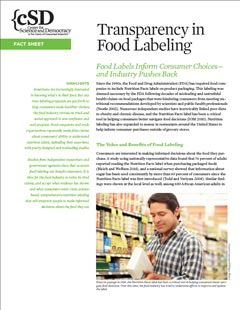


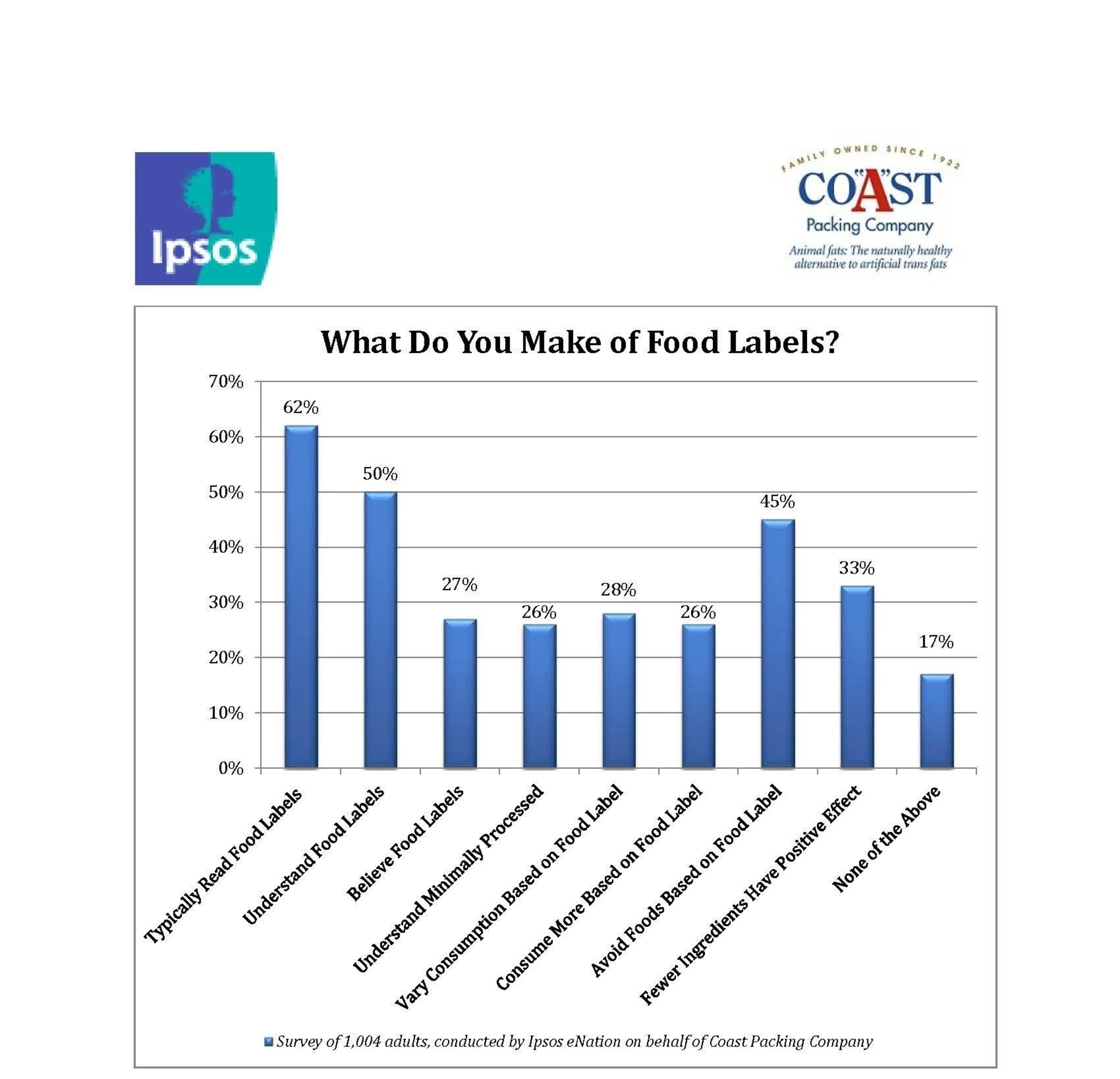

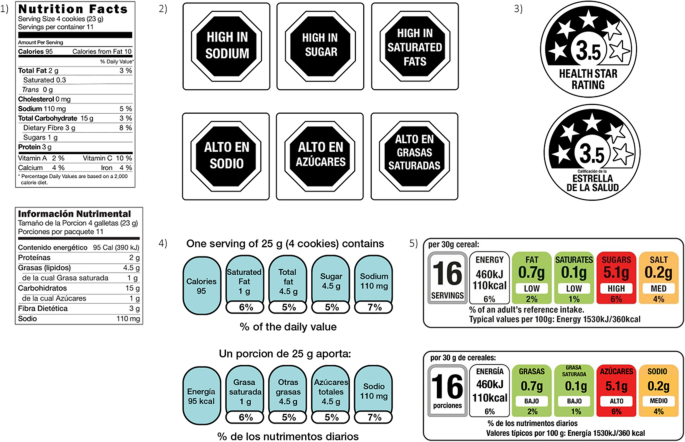

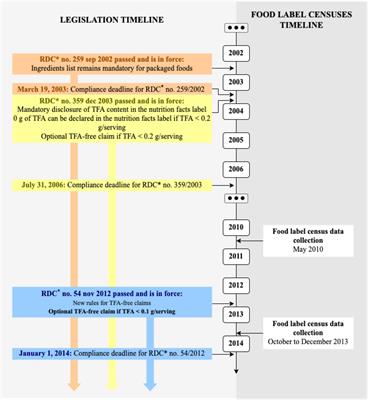
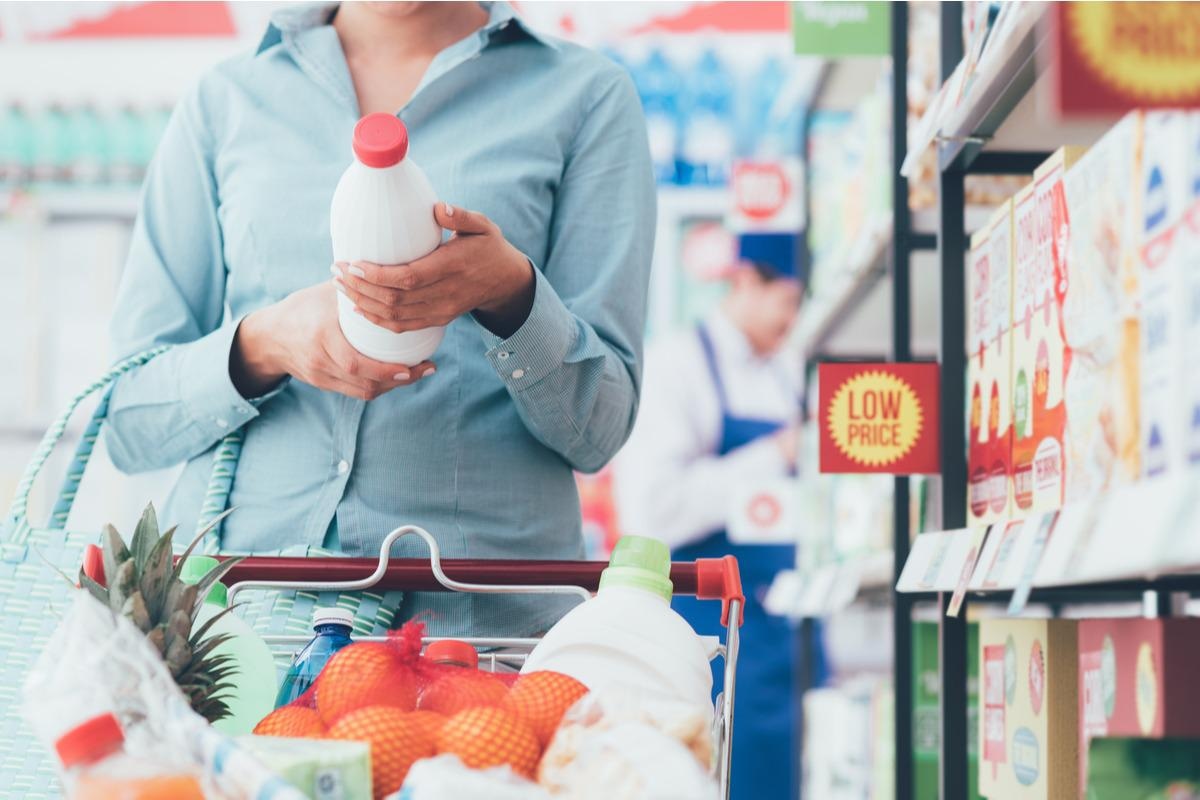


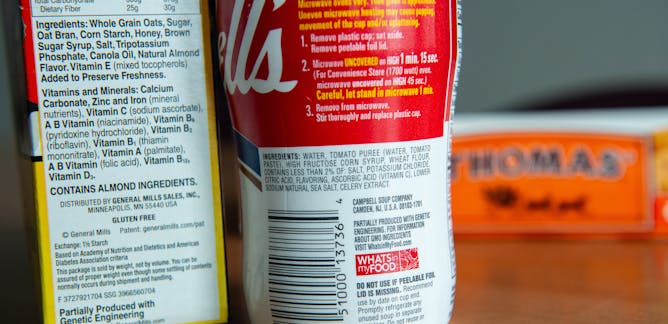






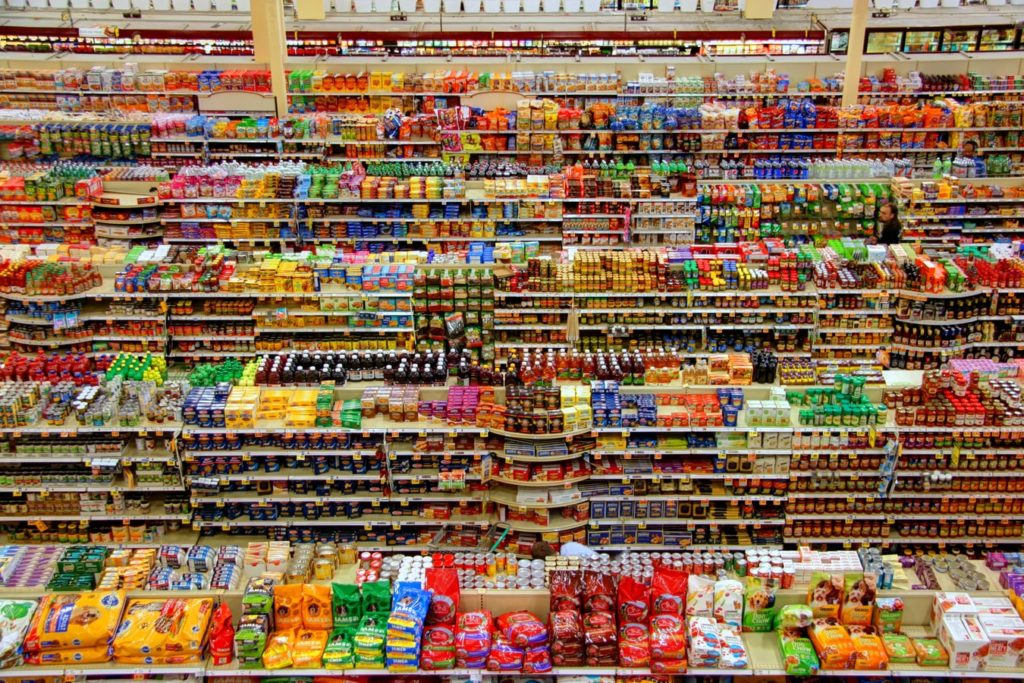

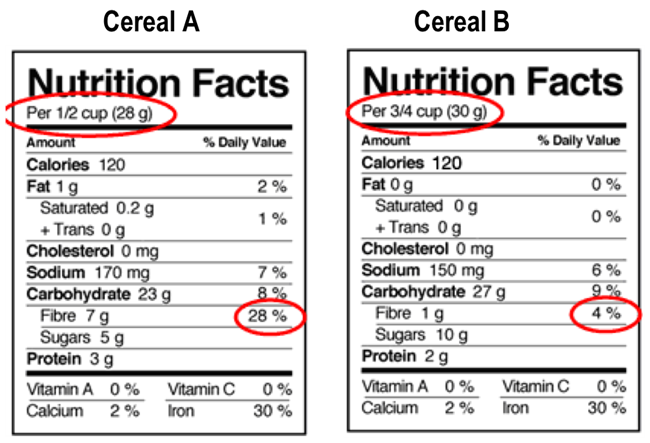



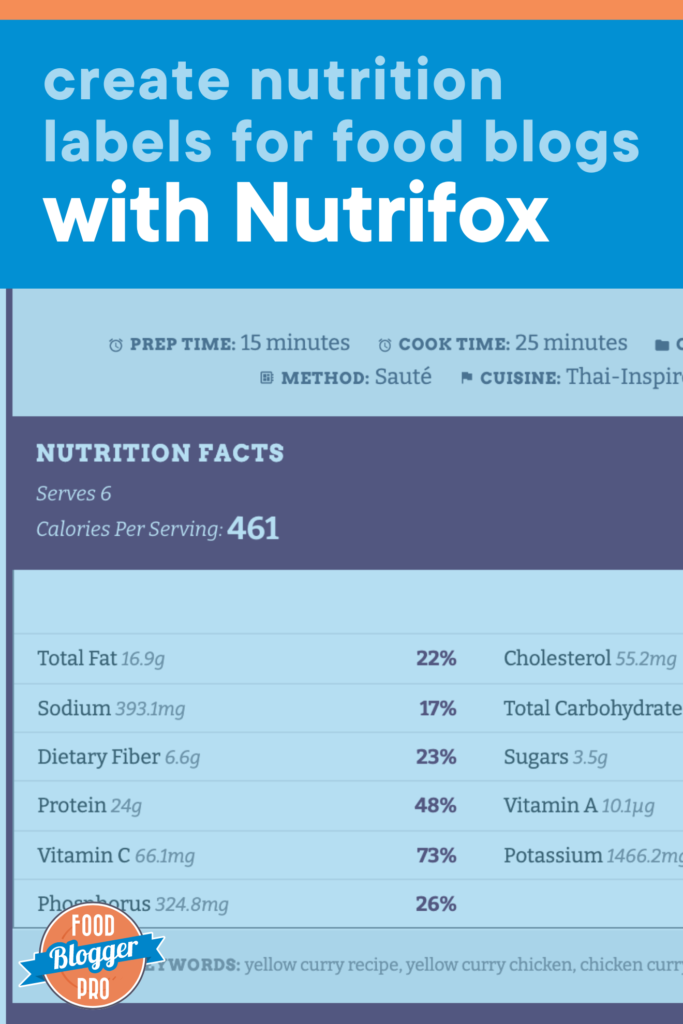

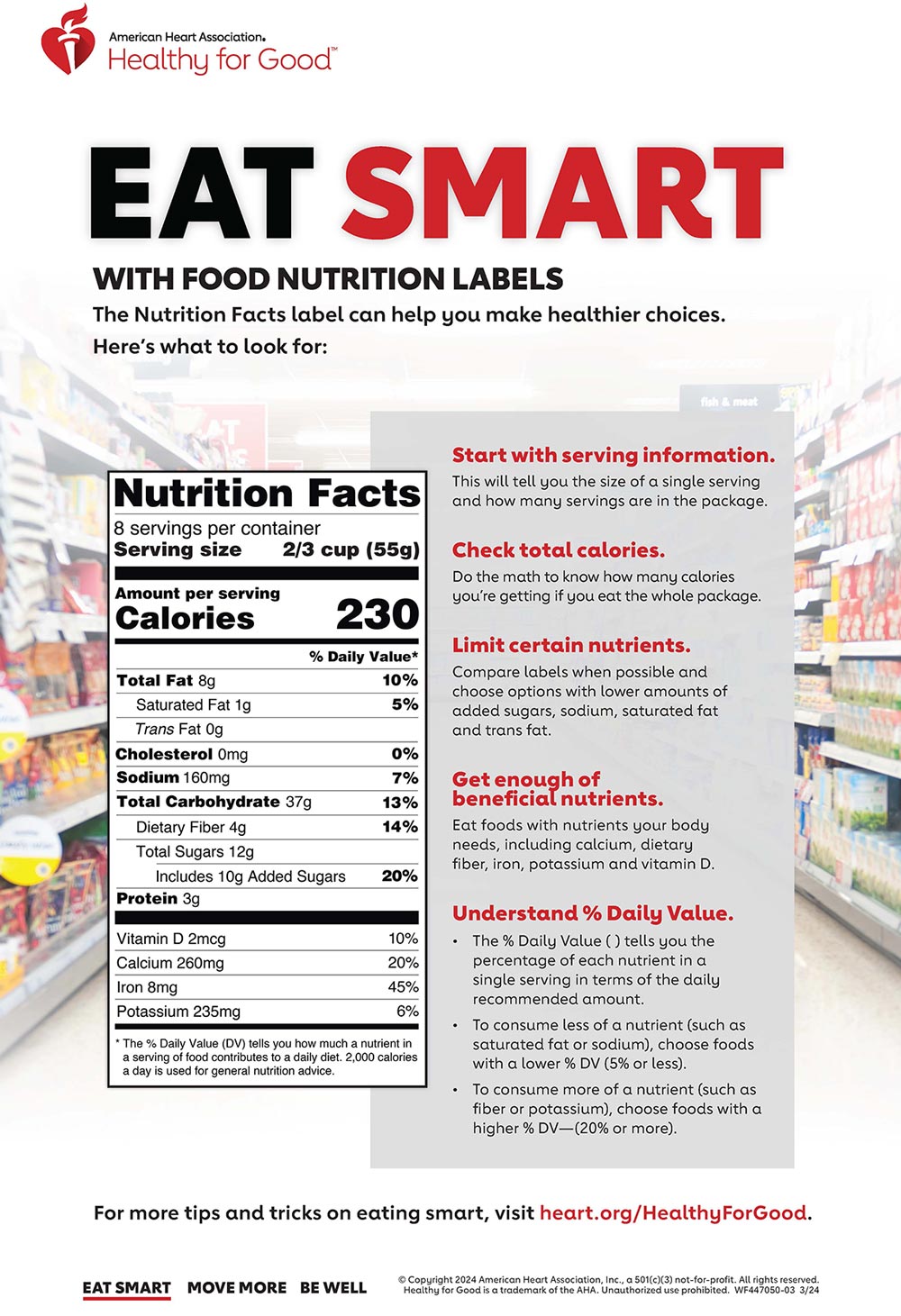

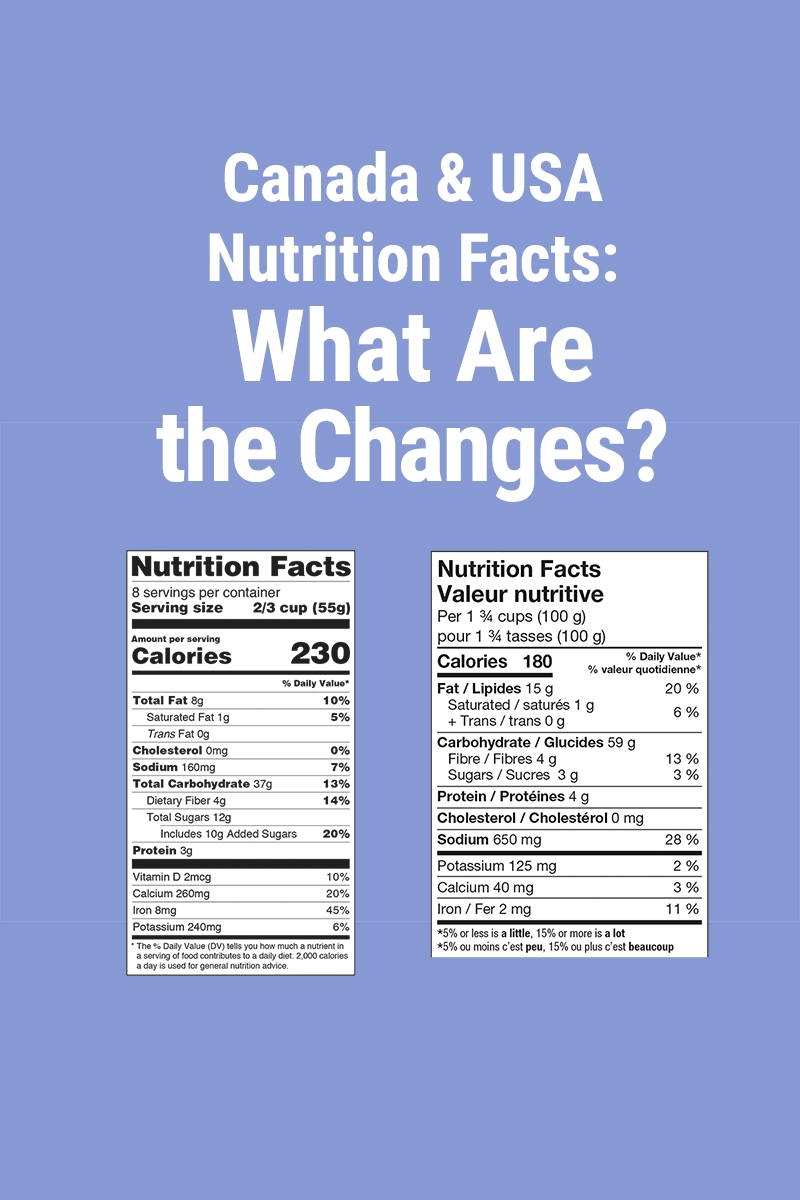
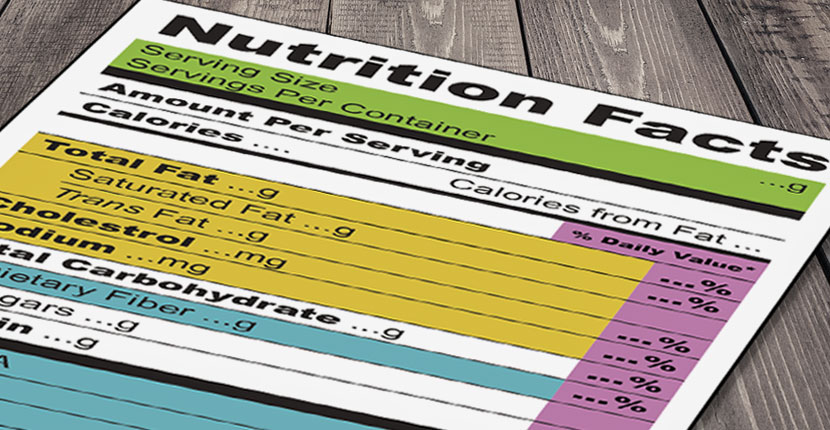

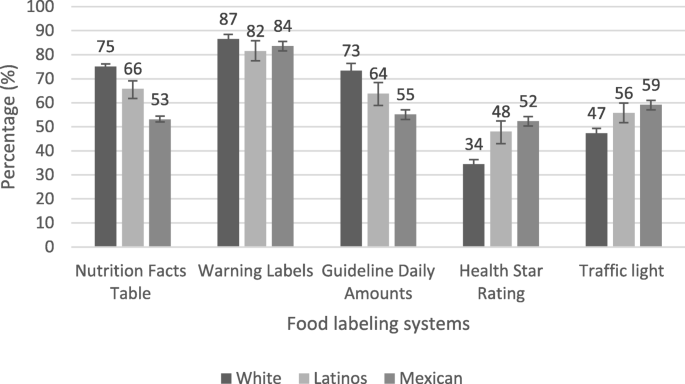
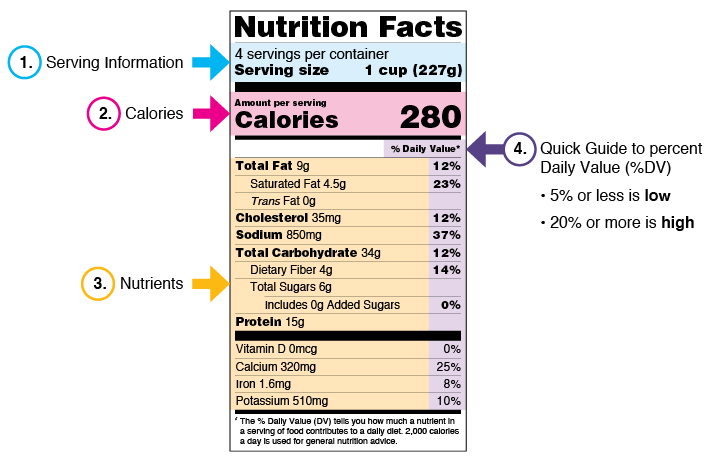
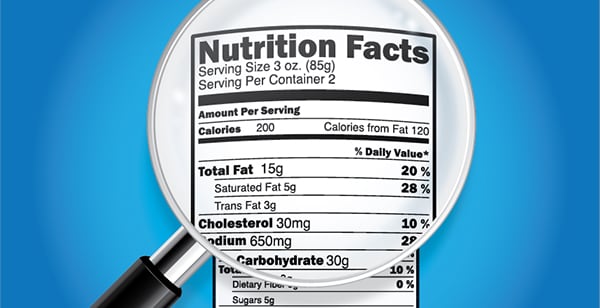

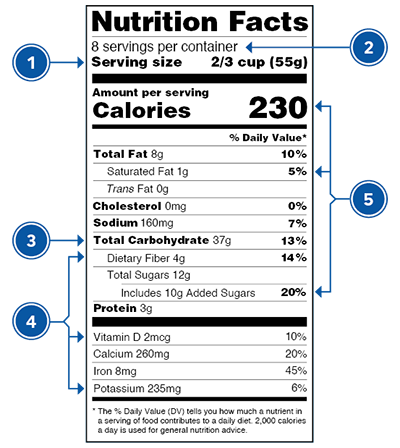
Post a Comment for "38 article on food labels"